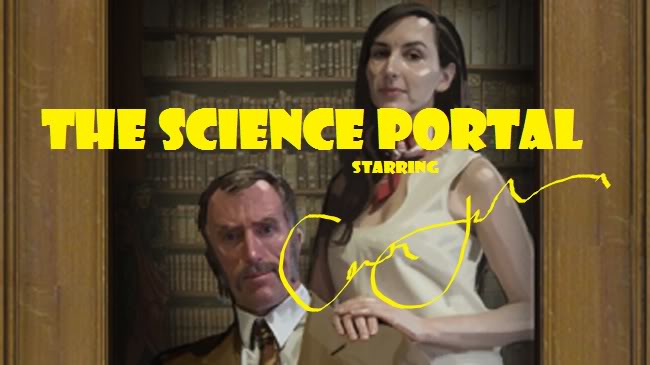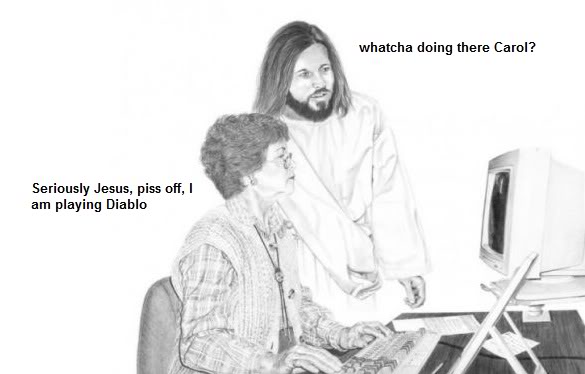 *Disclaimer: Cave Johnson will not be appearing in this week’s The Science Portal due to a senate hearing about missing astronauts
*Disclaimer: Cave Johnson will not be appearing in this week’s The Science Portal due to a senate hearing about missing astronauts
Greetings friend, you may or may not know me as Jackson W. Ryan (community writer). I maintain a presence on the internet via Twitter and a personal blog, yet my Klout score would barely register a 2. I do not get paid to make product endorsements via the internet and thus, I have a day job. I am passionate about it. I work as a research scientist in a celebrated but small laboratory in South Australia investigating the endocrine system and its role in bone health. There’s something you guys should know from the outset: I am in no way affiliated with Aperture Science; I have never experimented with praying mantis DNA and when life gives me lemons, I usually just use those glistening oval fruits to make a cheesecake. In this column, I want to marry my two passions: writing about video games and science. I have asked the CEO and founder of Aperture Science to lend me a hand. Will it work? Probably not. Will you learn something? I am not committed to answering that with a yes, for it will end in a lawsuit, but you will. Do I want you to read it? Damn right I do, I want the best, and you are it! So who is ready to make some science (-related video game posts)? That’s right, I am!
Do video games make us disbelieve?
Since the early days of YouTube comment threads (possibly earlier), the debate over whether God is real or not has raged like its copy of Unreal Tournament wouldn’t load fast enough. I know, I am starting off my very first science and video games article with religion and that seems kind of… backward… I know. But hear me out. Take a group of fifty people and ask them their religious beliefs and you get a myriad of answers: some believe in God, some believe in many gods, some flat out reject belief and some sit on the fence, among other things. You ask those same people why they believe what they believe and I guarantee the responses will be just as, if not more, varied. Religious belief and science constantly collide, even today, but much of the neurological and psychological processes that underlie religious belief have been elusive. Whether God exists or not is irrelevant, for there will always be belief. So science, tell me, what do we known about cognition and religious belief?
Some believe it to be naturally built into the human condition, such as Justin L. Barrett, who argues that we exit the womb as a slimy, crying, hairless theist, while others argue that belief stems from the indoctrination we receive as young children (I believe Dawkins speaks about this in The God Delusion). The relationship between cognition and belief has been strengthened in recent times, and the idea that the malleable mind of the child is the central location for establishing belief systems has become a prominent idea in psychology. If religion is just a by-product of our experiences with the world at a young age – whether that be firming the ‘inbuilt’ belief or by establishing belief through continuous exposure to it – then isn’t it possible that video games have a direct effect on our religious beliefs?

A recent study published by Will Gervais (no relation to Ricky, who's Twitter account is, at times, a testament to all that is wrong with the debate about religion) and Ara Norenzayan, a prominent researcher in the field of belief psychology, actually approached the established ideal from another angle and tried to elucidate what causes us to disbelieve religious ideals. Essentially, the researchers asked one test group a series of questions that required analytical thinkingIn doing so, they established that one factor that promotes such a phenomenon is analytical thinking, suggesting that one reason scientists in particular are non-believers is due to their propensity to analyse and dissect information. As a scientist myself, this made me question my belief system and where it flowered from. Was the seed of disbelief sown via my ability to analyse information? Did my disbelief start when I was younger? If so, what was I doing when I was younger that made me question the world around me so much?
The answer, of course: I was playing video games.
You see when I was about three years old; I was playingSuper Mario Bros. on a NES next to my cousin, who was unfortunately in a hospital bed for severe burns. That was my first exposure both to the horrors of a hospital ward and to the wonders of video games. I recall spending more than three hours in that hospital room, just playing the NES until my father finally pulled me from the white-gloved hands of a thick-moustached duo of plumbers (Well, I guess on the NES, Mario and Luigi never wore gloves, but you know, dramatic effect and stuff). I kicked and screamed and to this day am surprised the nurse’s didn’t sedate me.
I don’t think I was analysing much during those days, certainly Super Mario Bros. doesn’t require a ton of critical thinking but over the next few years a number of games were released that required a me to analyse the circumstances and solve the problems that were presented to me. I am talking about titles like Final Fantasy VII which require a level of understanding related to the various gameplay elements to progress the story, such as to ensure victory in battles. [Cast Fire on a bomb and it gets HP restored? What! That sucks! Well, what’s the opposite of fire? Ice, I guess! Cast Shiva. Critical Hit. *swings sword around in front of face and sheathes it*]. Games like Abe’s Oddysee not only demonstrate that it’s probably for the best that you don’t stand under gigantic mincing saws, but require analytical thinking to progress from screen to screen, and door to door. My first experience with The Legend of Zelda came smack in the middle of the years when my mind was deciding just what is true and what is false in this world.
If analytical thinking directly results in an erosion of belief in God, then video games definitely have a role in aiding that erosion.

Of course, I am not suggesting that playing video games makes you an atheist; I prefer to think of this as a celebration of video games ability to promote analytical thinking. It just so happens that such a cognitive response may also itself promote disbelief in religion. Have video games alone made me a non-believer? No. I have to place some of the responsibility for that on my parents, the schools I attended, the friends I hung out with and the teachers that taught me as a youngster. But have video games played a role in shaping my belief system? Perhaps.
As video games are becoming more and more ingrained into the various cultures of the world, I can’t help but think there are a number of kids that are wondering about the origins of this wonderful planet in between sessions of Skyward Sword or Fez. I wonder how their experiences in those games affect their religious beliefs. To truly understand the link, I think it would be beneficial to examine the habits of gamers and the games they play and relate this to their beliefs. Perhaps a study similar to the one performed in the Gervais and Norenzayan paper could even substitute the testing system they used for one that compares the religious beliefs of those who spend hours in WoW to those who blow stuff up in Call of Duty. Important research? Probably not. Interesting research? Definitely ‘round these parts.
If you’re a gamer (and, aren’t we all?) then let me know if you’re a religious person and if you can, let me know where that belief comes from, what kind of games you play etc. It’d be interesting to know!
This has been The Science Portal with Cave Johnson and Jackson W. Ryan, thanks for stopping by! Fingers crossed Cave will be here next week, apparently he’s bringing lemons!
VentureBeat's mission is to be a digital town square for technical decision-makers to gain knowledge about transformative enterprise technology and transact. Learn More

